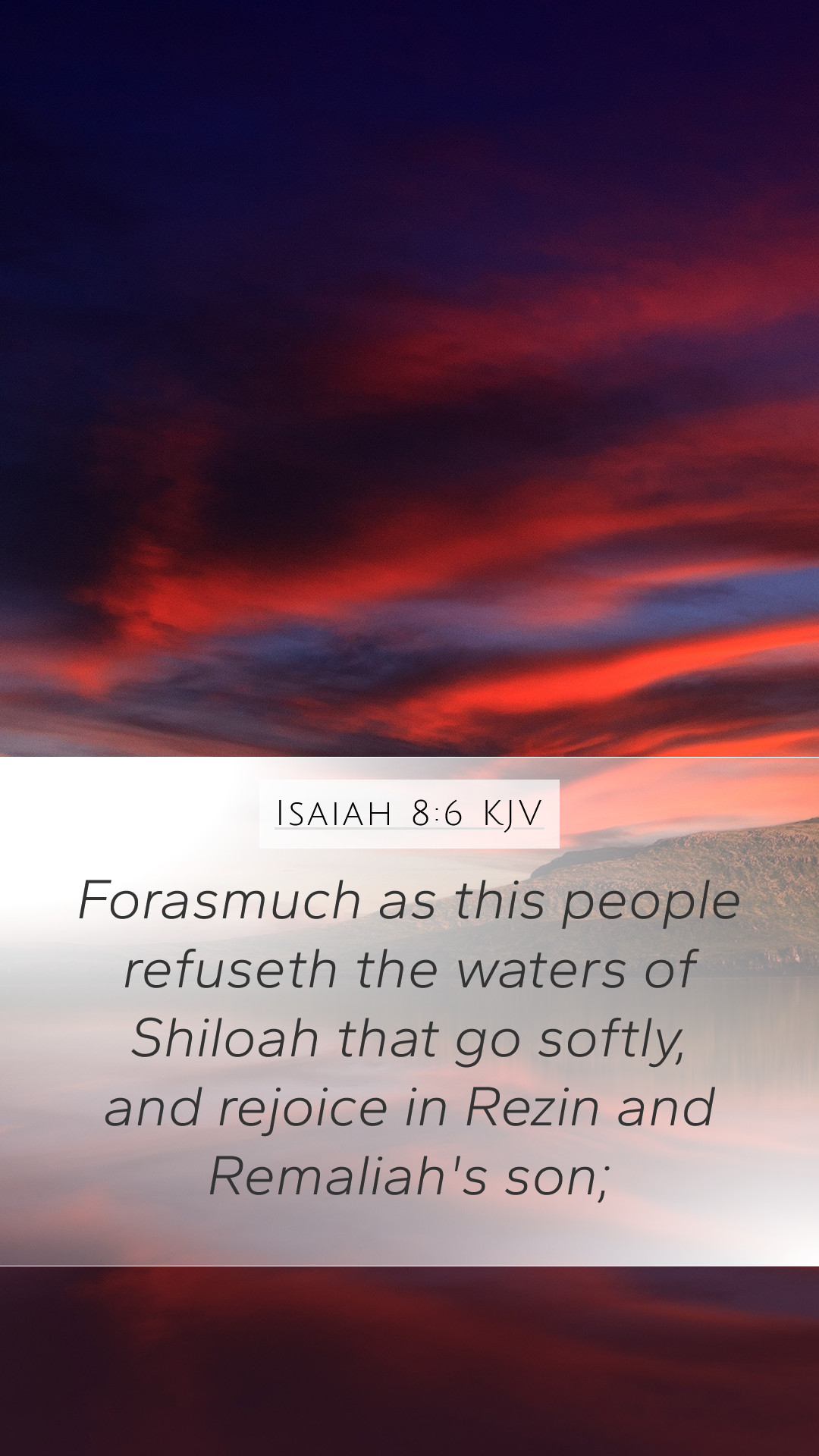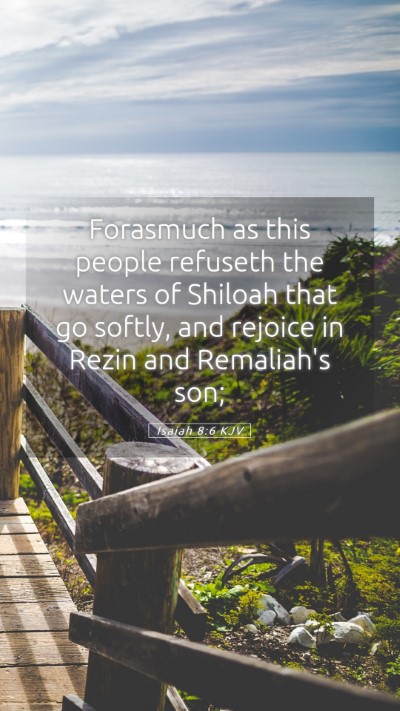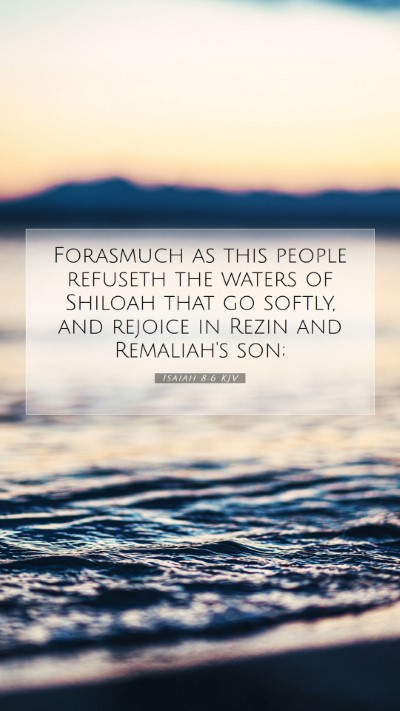Understanding Isaiah 8:6: A Comprehensive Commentary
Isaiah 8:6 states: “For as much as this people refuseth the waters of Shiloah that go softly, and rejoice in Rezin and Remaliah’s son;” This verse holds significant meaning within the context of Isaiah's prophetic ministry. Drawing from an analysis of several public domain commentaries, we can derive a deeper understanding of this verse.
Contextual Background
The historical context of this verse is crucial for understanding its implications. At the time when Isaiah prophesied, the kingdom of Judah was facing threats from the north, particularly from the kingdoms of Israel and Syria. The “waters of Shiloah,” mentioned in the verse, symbolize the peaceful and divine sustenance that God provides, represented by Jerusalem’s serene waters.
Core Themes of Isaiah 8:6
-
Rejection of Divine Guidance:
Isaiah critiques the people’s choice to reject God's gentle guidance, represented by 'the waters of Shiloah.' This refusal signifies their inclination to seek help from worldly powers such as Rezin and the son of Remaliah (the king of Israel), highlighting a lack of faith.
-
Symbolism of the Waters:
Matthew Henry notes that the waters of Shiloah symbolize the refreshing and dependable sustenance that God offers, contrasting sharply with the tumultuous waters that the people prefer, which represent the alliances and political maneuvers with Israel and Syria.
-
Impending Judgment:
Albert Barnes emphasizes that the choice of trusting in human alliances over divine assistance invites judgment. The verse serves as a dire warning of the consequences that will follow their misguided decisions.
-
Spiritual Blindness:
Adam Clarke interprets this verse as indicative of the spiritual blindness of the Israelites. They do not perceive the value of God’s provision, leading them to embrace danger rather than rely on the safety promised by God.
Commentary Insights
The insight derived from these commentaries can be approached as follows:
-
Matthew Henry’s Commentary:
Matthew Henry underscores that the waters of Shiloah represent the peace and comfort of God, contrasting with the turbulent waters, which symbolize the unfaithfulness and instability of human schemes.
-
Albert Barnes' Exegesis:
Barnes notes that the people’s rejection of God's guidance leads to a reliance on the corrupt and unreliable. This highlights a vital theme of embracing divine wisdom over earthly understanding.
-
Adam Clarke’s Analysis:
Clarke points out the futility of seeking support from mortal leaders when divine leadership is available, reflecting on the historical failures of Israel seeking alliances instead of trusting in God’s protection.
Application to Daily Life
In application, Isaiah 8:6 calls modern believers to reflect on their own sources of trust and guidance. Are they leaning on God’s wisdom, or do they seek the assurances of popular opinion and worldly wisdom? This verse serves as an important reminder to prioritize divine counsel above all else.
Related Biblical References
- Isaiah 7:1-9 - The threat from Aram and Israel
- Isaiah 28:9-10 - Understanding God’s teaching
- Psalm 46:4 - God as our refuge and strength
Concluding Remarks
Isaiah 8:6 provides critical insights not only about the nature of God’s guidance but also about the seriousness of dismissing such guidance. Through various commentaries, we uncover the layers of meaning within this verse, which can enhance our understanding of scripture and improve our Bible study practices.
This detailed analysis is vital for anyone engaged in Bible study, whether in Bible study groups or online Bible study. By examining such verses through the lens of biblical exegesis and scriptural analysis, believers can deepen their understanding of the word of God and its applications in their lives.


